Do you have too much wine? The answer to that question will probably depend on how much disposable income you have and whether you have the space to keep it, or to pay someone else to do so. I’m extremely lucky. I don’t have a cellar in the conventional sense, but our house is built on a hill so that, via a door lower down the house, I have storage which is beneath the front floor. It’s much the same thing in terms of temperature variation. It means that over time I’ve built up a decent wine collection, albeit measured in merely hundreds of bottles.
I have friends and acquaintances who own many thousands of bottles, far more than they could possibly drink in their lifetimes. Of course, if they have purchased wisely, they may be able to turn their cellar, or their stash at a bonded warehouse, into a nice retirement fund. I couldn’t do that. Never sold a bottle, don’t intend to, though when my last Chave Hermitages were worth around £250/bottle it was almost tempting. Almost. My ideal would be to drink it all before I go, but timing like that would be mere luck. No one in my family would be sufficiently interested in my stash for it to be particularly appreciated as something to pass on. It may end up as something only slightly less onerous to clear out than all the crap stored in the loft.
I spotted an anonymous poll on Tom Cannavan’s Winepages Forum last week, titled “How Many Bottles Do You Own?” The largest number of respondents at the time of looking (19%) said they own between 1,000 and 2,000 bottles, but 5.7% of those replying claim to own “more than 10,000 bottles”. Another 5.1% answered “7,000 to 10,000”. As a visitor to that forum, I would tend to believe they are telling the truth.
I’m guessing many people reading this will not be so lucky, particularly younger readers who, like me back in my twenties and very early thirties, probably just have a rack or two under the stairs. I think it was around the mid-1990s when I hit my first hundred bottles and it has crept up from there.
The thing is, when you begin to amass a lot of wine, something odd begins to happen. Before your cellar reaches a sort of equilibrium, the common problem is being forced to drink a bottle too young, either that or to go out and buy something cheap to drink instead as the only alternative. After a certain point you end up not wanting to drink that precious bottle you have saved for years. A certain unwillingness to let go. Sometimes bottles get ignored as a result of changing taste. I have a dwindling selection of fine Bordeaux and Burgundy, which save for a small handful of “natural” producers I hardly buy anymore. But there are also unicorn wines which I doubt will be easy to come by again, even if I can afford the atrociously elevated prices of current vintages. So, when they are gone, they are truly gone, and that can be scary.
There’s a kind of warm feeling I get when I enter the cellar. I don’t exactly stroke the bottles (I’m told some people do), but I am aware (in most cases with remarkable accuracy) where most wines are located and their presence does impinge upon my consciousness. Frankly, it feels good. I think it’s a similar feeling with all collections, except that with a book or an LP you can re-read or re-listen. Once the wine is consumed, that’s it, gone. It’s a frightening thought.
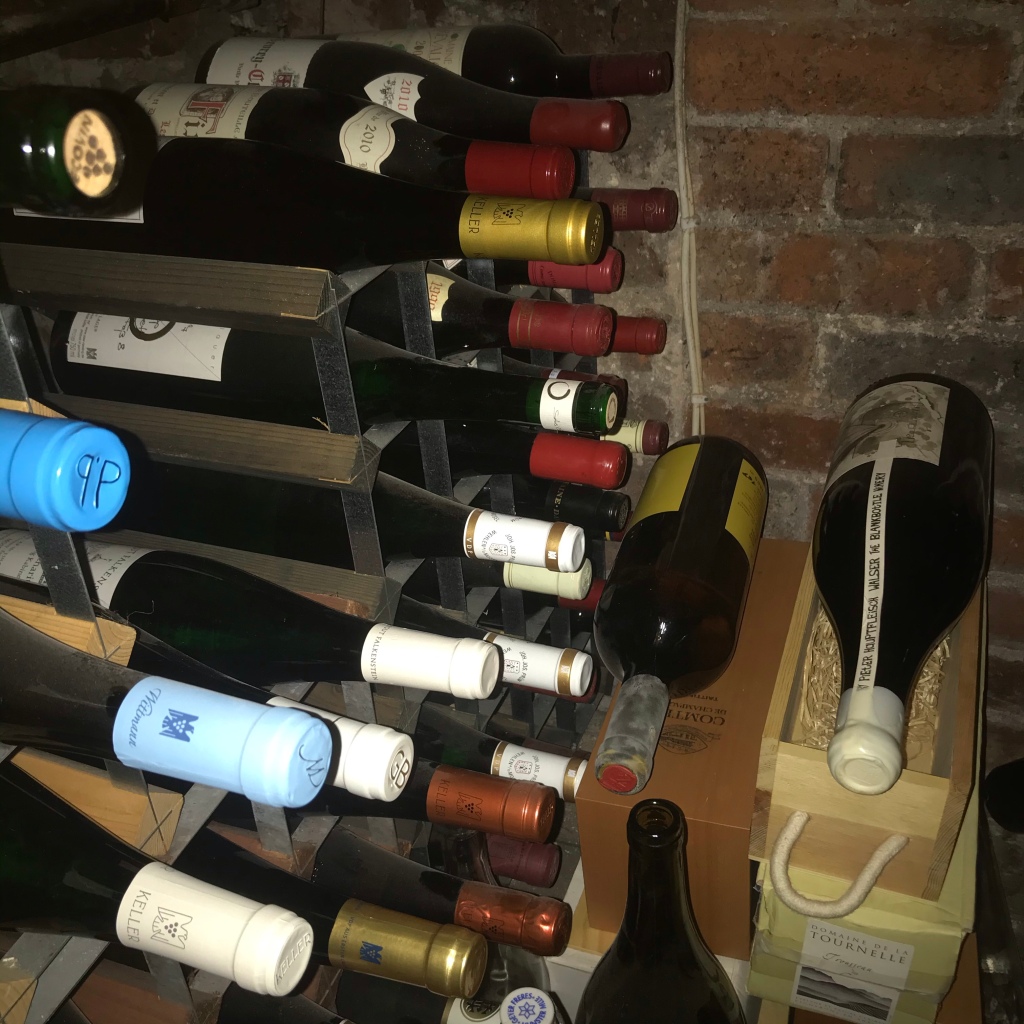
Some people firmly believe you have to buy a whole case of each wine. Then you don’t need to feel that sense of loss until the final bottle, which you will probably consume as the contents are beginning to fade, anyway. Of course, there’s always the Coravin, but I don’t own one and don’t intend to, a purely personal choice based on how I like to enjoy a bottle of wine.
I used to subscribe to the view that one should preferably buy a whole case, certainly six bottles at least (though money was certainly a factor in curtailing how often I did), but then at some point around the year 2000 I realised that there is such a wide world of wine out there, buying cases, or even six-packs, was going to seriously curtail the number of new experiences open to me. This is when my norm of purchasing one bottle, sometimes two, very occasionally three or four, began to take hold.
What makes for a collector, I wonder? Some suggest it’s a pastime for geeks, introverts with few social skills. I don’t agree, or at least I hope those who know me find me pleasant, engaged, capable of empathy etc. But there is certainly a collector gene. Strangely, my daughter has it but my son could probably live out of a suitcase (plus a couple of guitars). People collect all sorts of things, and I’m sure wine collecting is just another aspect the overall “hobby”. In many cases it can become a genuine addiction though.
I began to wonder, when the idea for this piece came into my head, how long collecting has been a thing. We all know about the obsessive Victorians who went across the world, bringing back collections of plants, stuffed animals, dead butterflies and more. Before this period of frantic activity, Colonialism had already begun to sweep up the treasures of defeated civilisations like some great human phylloxera vastatrix, taking all in its path to fill country houses and the great new museums.
The Grand Tour was perhaps a more legitimate way of collecting cultural objects to bring home…when you paid the artist rather than some tomb or temple thief (the robbing of temples is still going on today, whilst most tombs have long been emptied). Have we always been collectors? Did our Neolithic ancestors invite a prospective partner back to their cave to see their collection of flints, or sabre-tooth tiger teeth?
My own habit began very briefly in childhood. I had a stamp collection aged around nine or ten. As pre-teens hit, that tentative interest transferred to a zeal for vinyl as I got into music. It was two miles to my nearest record shop, and on a Saturday morning I would walk there and back with my mate, David White, to buy a 7” single. Both of us had a fairly standard allowance that meant we could afford the record but not the bus fare.
Collecting recorded music has been a lifelong passion of mine, although pretty much every record I owned was sold for very little money around 1978 in order to buy the new bands of the post-punk era. I’ve been equally voracious in accumulating classical composers as well as rock and pop, especially opera. I’ve been trying to play every one of my alphabetically-shelved LPs and CDs this past year. It is going to take a very long time to get through them, but I’m enjoying the discipline. Some things haven’t been given a spin for twenty years.
Books have also been a passion. I’m an avid reader, as is my wife, and we have well over two-thousand books here at a guess. Occasionally some go to charity, but inevitably every time they do I want to read a book I gave away six or twelve months ago. Of course, within this category is my wine library. I did a quick count and it came to 108 wine books. Some of them I’ve read three or four times and they are an invaluable research resource. Even here, I’ve got rid of some over the years and almost always regretted it.
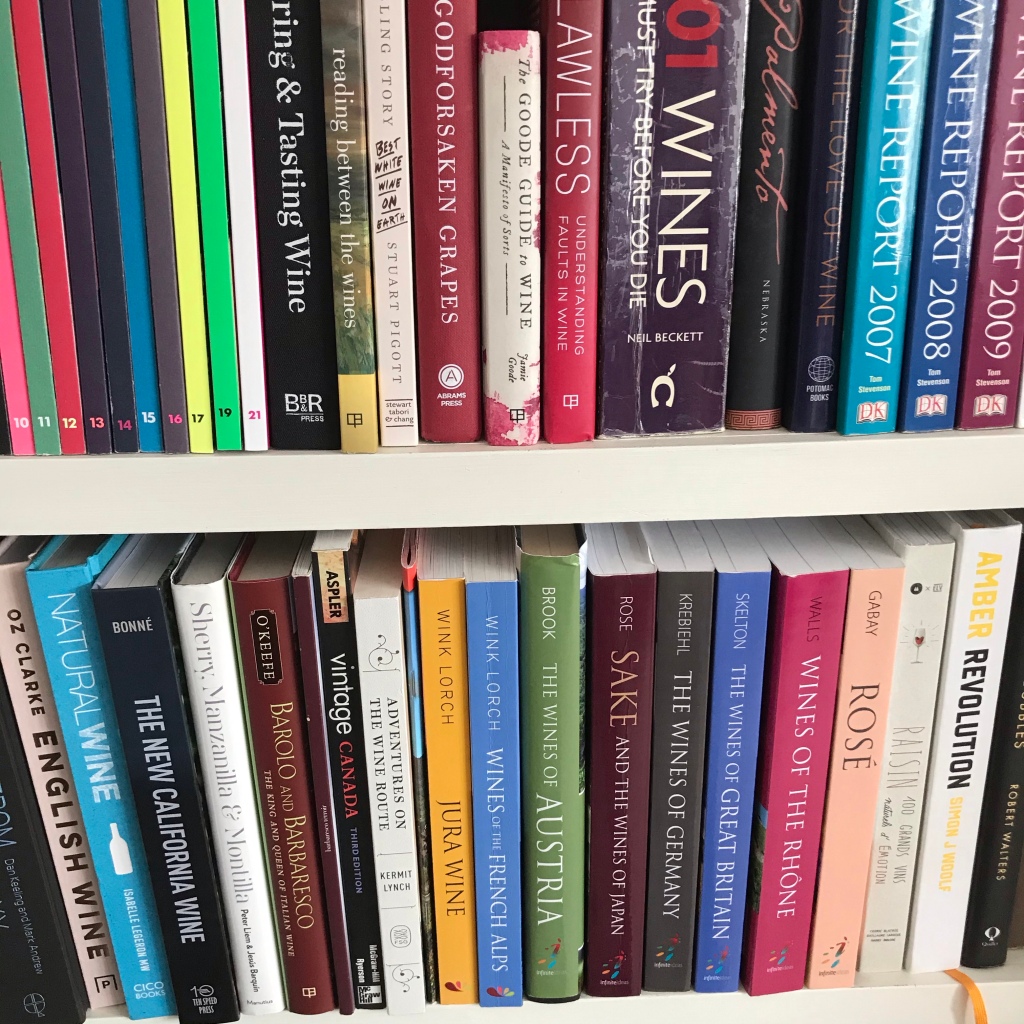
People collect what many of us would think odd things. When I was in my early teens a friend’s father was an amateur film maker and he collected those LPs of sound bites (steam train, fanfare, volcano erupting…) and we spent many fascinating hours playing them just as we would play any of our more conventional musical discoveries. These records became highly sought after when sampling became common in certain musical genres.
A lot of collecting is of things from the past. Nostalgia is very much one impetus for collecting, for inducing that warm glow, often for a time when life was a lot simpler and we felt safe and secure. It’s probably why I’m all of a sudden playing music from my teenage years. Wine purchasing is in some ways the opposite, a burning desire to try the new. But then we don’t open it. What’s that all about? Ownership? Is hanging on to wine bottles a bit like buying vinyl and keeping it unopened in its shrink wrapping, or like collectors of toy cars or plastic film characters, left in their boxes or blister packs, not played with?
Some collect wine to boast about it. Rows of Le Pin, Pétrus and DP to show your friends, just like the guy who was a friend of my wife’s father, who had a whole room full of his regimental memorabilia which he would be sure to show with glee on any visit. Others hide it all away, lest a visitor should ask him (usually him) to open a treasured bottle. I fall in between, because I know that part of my reason for not opening a bottle is because I want to be able to share it with people who don’t have one, be that at our place for dinner, or at a BYOB wine event. There are definitely wines we connect with certain friends. Oh, so-and-so loves L’Octavin but someone else likes old Bordeaux.
My wish to be generous is genuine, although there is the occasional pang of minor regret…the tiny pour of that last bottle of Ganevat Vin Jaune shared with ten or twelve wine fanatics in a restaurant. But what goes around comes around, and I know my own mild generosity has been more than matched by the generosity of others over the years. That is one of the great things about the wine fraternity, and collecting wine at least allows a degree of sharing not available to those who collect toy cars or dolls.
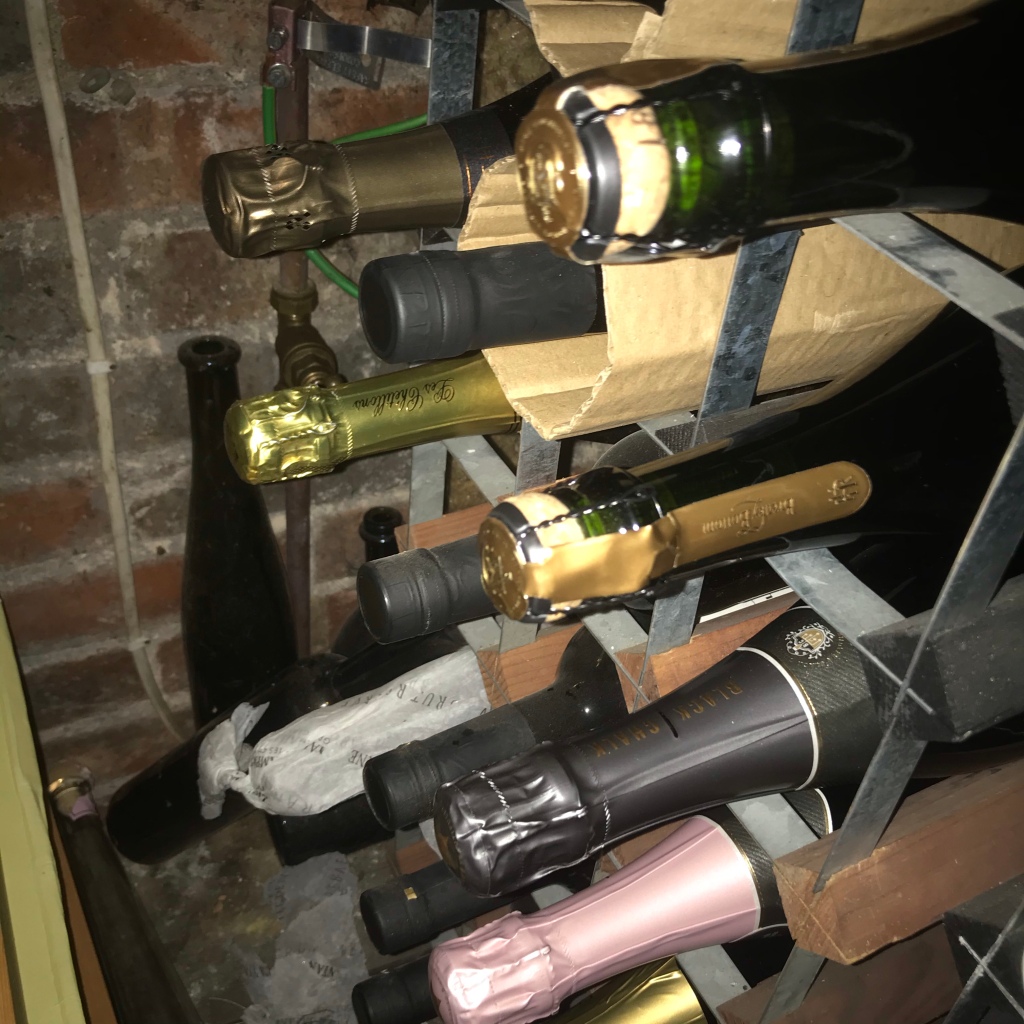
You might think this is an unusual topic for me to write about. I suppose that over the past year of lockdowns I have been buying more wine than usual. Without doubt, we have been drinking a bit more wine than usual as well, so the wine collection hasn’t really decreased in size, much as my wife would like to see fewer bottles parked on the floor in front of the racks. It has got me thinking, though, about the sheer quantity we have to get through at some point. As a result, I think our drinking habits have changed in one positive way. I have been selecting wines to drink which before, I would not have opened. I know I’m not alone in opening wines previously reserved for birthdays or Christmas on a random Wednesday night.
This feels like a major breakthrough. I’ve drunk more wines from favourite producers, such as Domaine L’Octavin, Gut Oggau or Rennersistas, during the past year than in any previous years. Equally, there are wines I own which I’d have readily grabbed in preference to rarer bottles, but which now I look at and wonder why I bought them. Not that they are bad wines…on the contrary. It’s just that they are not quite at the level of the wines I’m drinking, and that means both in terms of quality and also in terms of interest.
Another aspect of my collecting mentality has changed too. A few years ago, I was no less interested than any of my wine mates in trying to get hold of unicorn wines. Domaine des Miroirs, Dominique Lucas’s “Kheops”, Prieuré-St-Christophe from the Grisard era, Overnoy, Ganevat’s top domaine wines, you know the type of thing. As I mentioned in my last article, trying to obtain a mere bottle of these can be rather soul-destroying. In the old days you’d go into a Parisian wine bar and try to order a wine like this, and the guy behind the bar, glimpsing your imperfect anglophone pronunciation, would reply with an emphatic “Non!”. Well, these days you begin to hear that from English wine merchants you’ve known for years. A local wine shop refused me more than one bottle of a certain Languedoc red the other day, even though there were two out on the shelf.
I’ve started to realise that actually, much of the true excitement in wine exists in the £25-to-£35 range rather than going more expensive. I suppose that as my (relatively) expensive bottles do get consumed the desire to keep wine for decades will be tempered by the fact that many of the wines I’m buying now will probably taste better after four or five years rather than one or two decades (though the price-to-quality and ageability ratio for German Riesling remains astonishing). It’s a little sad to be reminded that fine Barolo is a pointless purchase for me now. I hope I’m still here in twenty years but I’d rather enjoy a top producer’s lesser wine in five years, just in case.
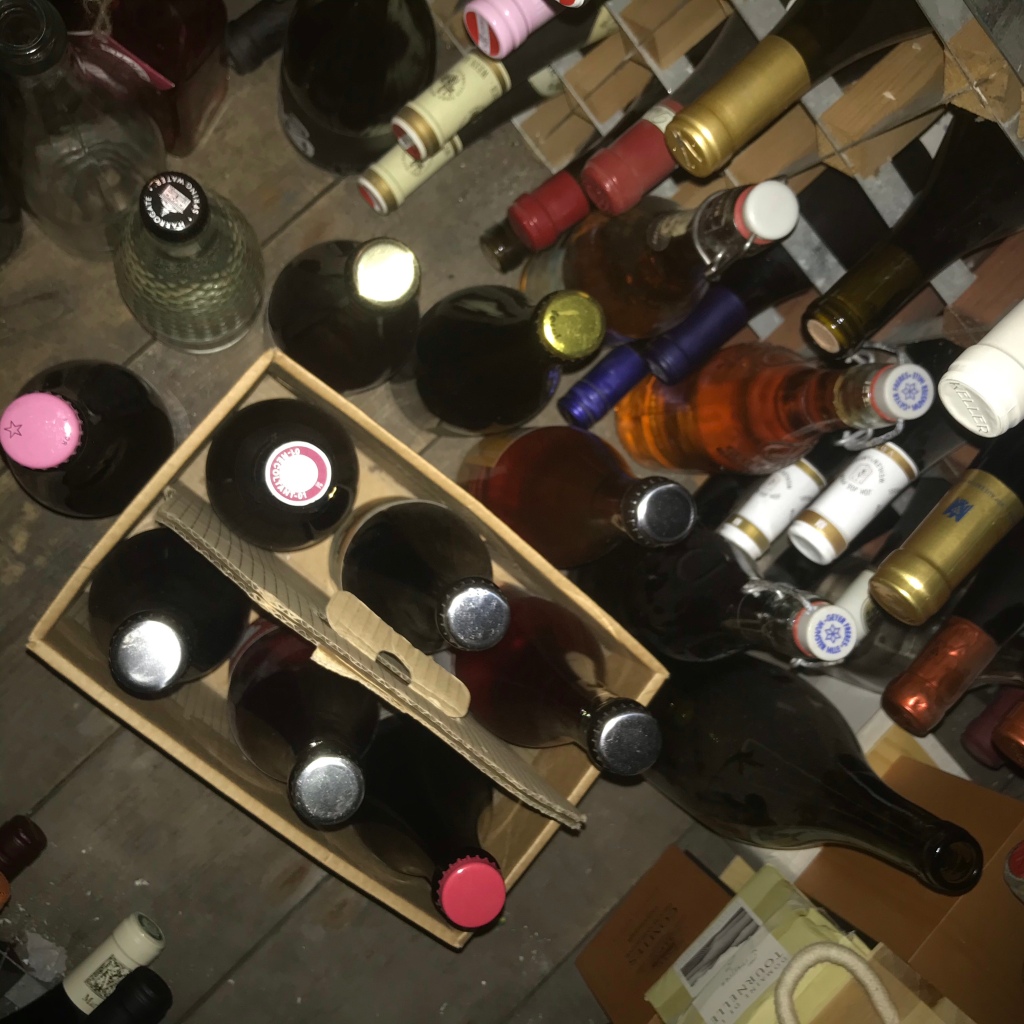
Spending less is greatly assisted by a new tack in my wine “collecting”. As wines from established producers become both more expensive and harder to source, I have found a new passion for new producers. I’ve always had a knack, due to my level of long emersion, for finding new stars. Having a finger on the pulse has always been important to me. I only truly know Jura as well as most because I first went to Arbois (as a day trip from Burgundy) in the 1980s and have returned most years ever since.
This certainly has a mirror in music. Part of my musical focus is definitely nostalgic. I bought a Neil Young ten-cd box of assorted radio broadcasts last week, and I have Frank Zappa’s last US concert on pre-order (out in June). But at the same time, I’m very much open to the new, hence my interest in the contemporary jazz of Sons of Kemet, and all the British rap/hip-hop artists I’m listening to at the same time.
This brings me to the last point, I think, that I’d like to make about the collecting impulse. It’s not necessarily about perceived quality. Of course, the collector of Le Pin in large format is no different to the guy who collects vintage Rolex (or vintage Porsches). That’s about collecting what is conspicuously the best, and will be seen as the best by fellow connoisseurs. But most collectors, for want of money or just a very different sensibility, collect for different criteria. To amass things which speak to them on a personal level. That may be toy soldiers, Wedgwood pottery, football programmes, concert tickets, or it may be wine.
This is why I’m pretty sure that owning wines from new and young producers in sometimes less well known, even obscure, wine regions, engages a different feeling than that of owning a collection of the finest Bordeaux, Burgundy or Champagne. That’s not to denigrate such collectors, who in all probability started their wine stash at a time when these wines were not so expensive, and not so difficult to source. But many will equally have paid top auction prices, and their feeling will be one of pride at the victory over others in the saleroom. Success as an emblem of manhood, perhaps. Seeking out the new, wines which do not yet have the stamp of greatness placed upon them by the trend setters is different, surely? Or perhaps not? I mean, we’re all obsessives to some degree.
At least you can be pretty sure that inviting someone to share your bottle of Prévost Fac-Simile may be slightly more enticing than asking them to come over to see your collection of pristine, boxed, Corgi toy cars. The bottle of wine you bought from a relatively unknown producer today may turn out to be a Prévost of the future (anyway, isn’t Collin the new Prévost, and Lassaigne the new Collin, or something like that?). It’s probably going to be the people with that sort of collecting mentality who will suss out which wines among the vast sea produced around the world will be the unicorns of tomorrow. Isn’t it? Help me out here.
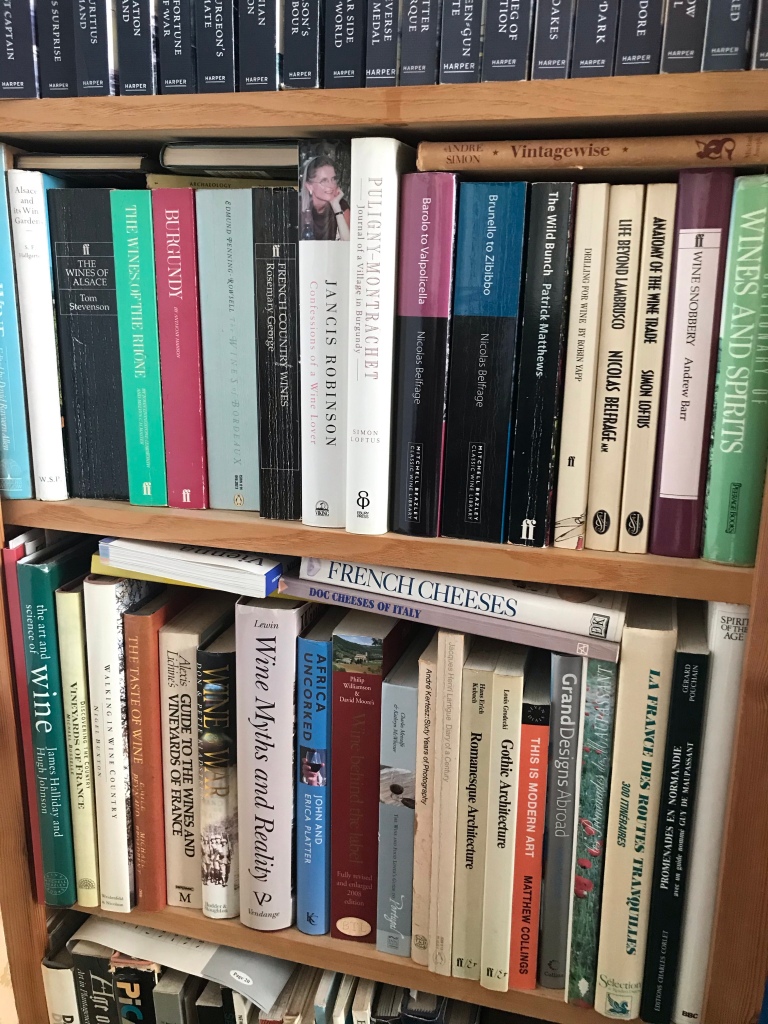
I’m hoping, on that note, to take a break from writing for a couple of weeks (though no, I’m not dashing off to Portugal, Ascension Island or The Falklands – to readers outside of the UK, a handful of places we could, in theory, visit without hotel quarantine on our return). I should be back in a fortnight’s time with what is shaping up to be a gorgeous set of wines from May, plus an article on a very exciting new winemaker, who some “collectors” I know are already busy snapping up.

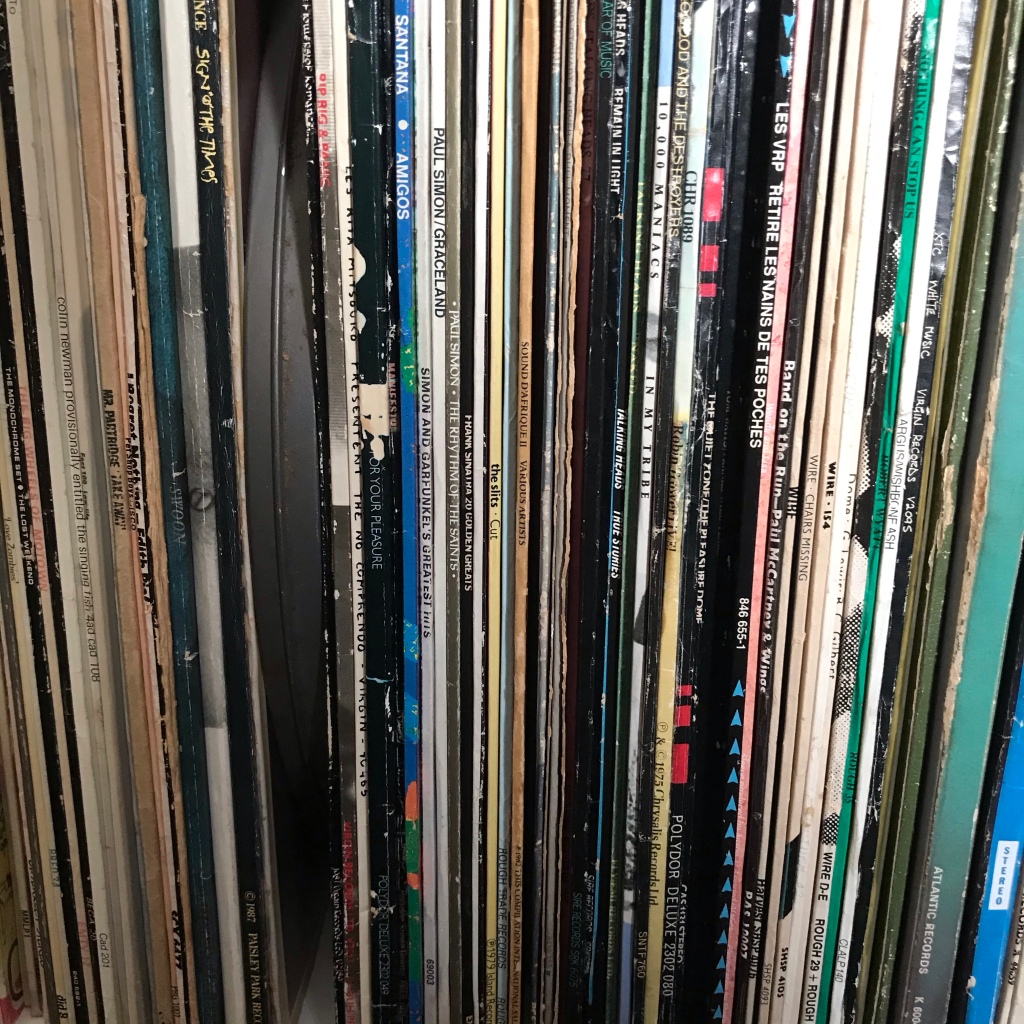
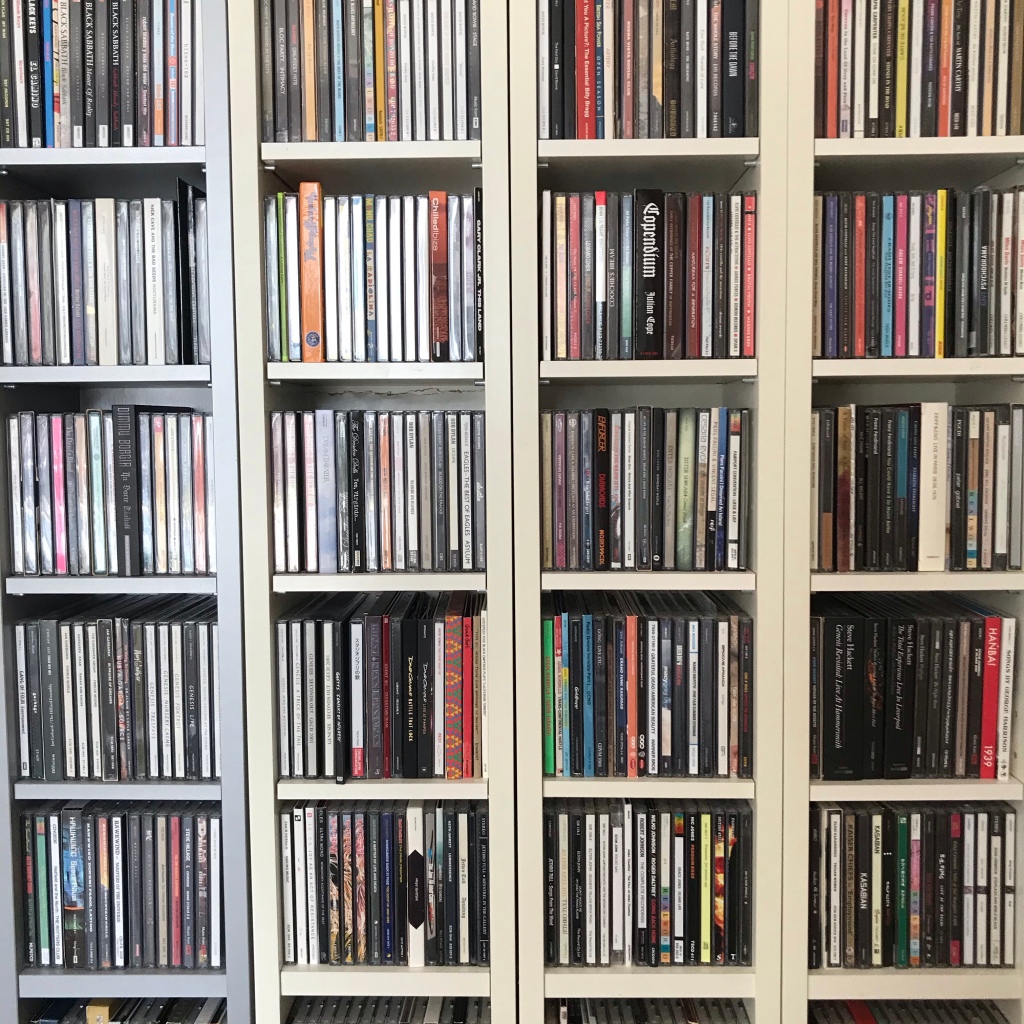
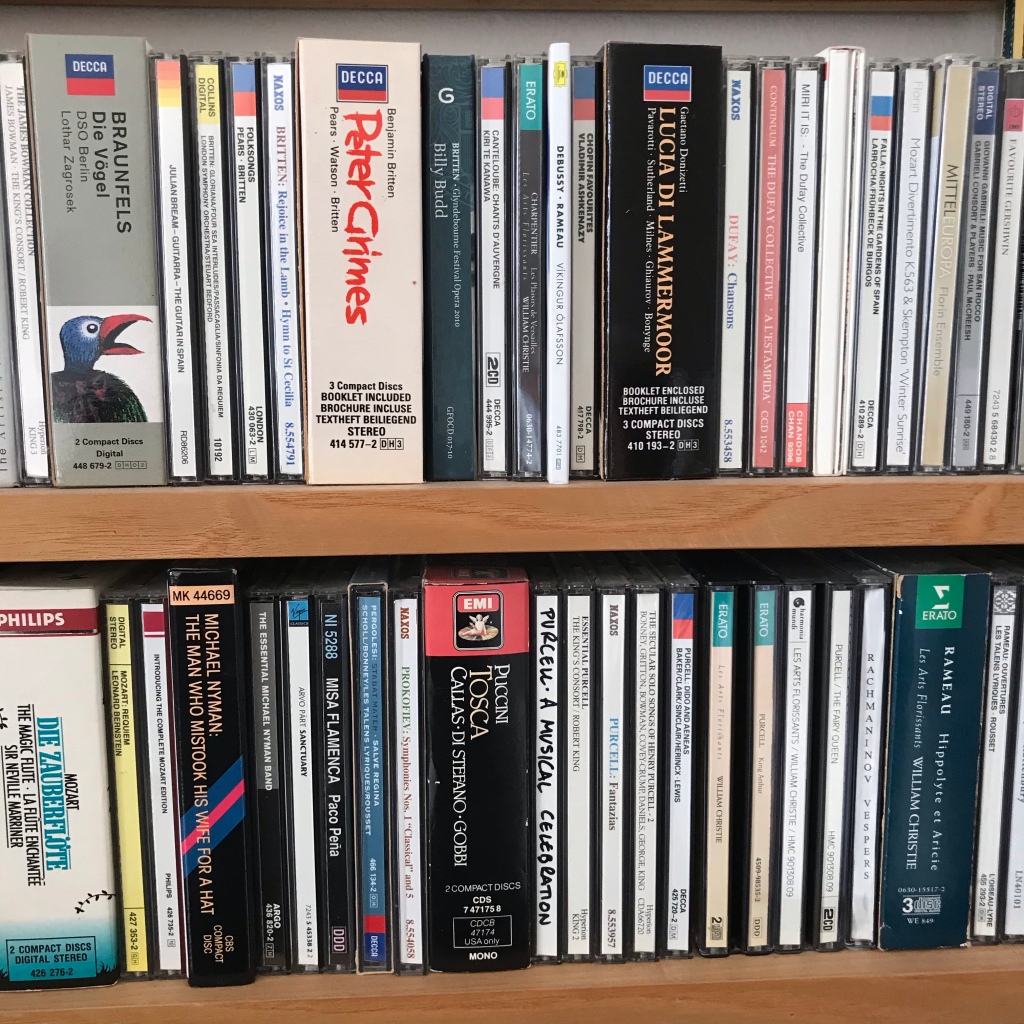
Excellent, recognise so much of myself in this
LikeLiked by 1 person